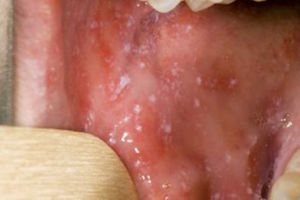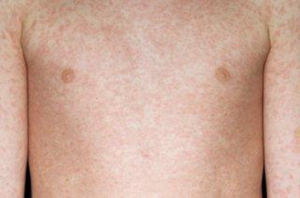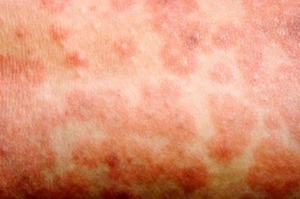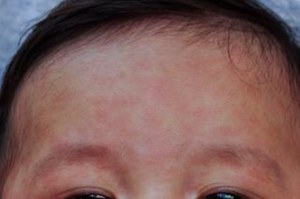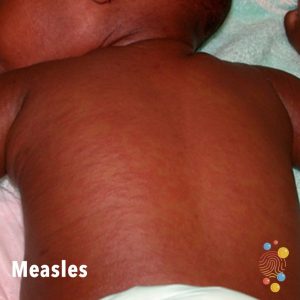You may be aware that there has been an increase in cases of measles in some parts of the country, including a small number of cases in Gloucestershire in both adults and children.
Measles is a highly infectious virus that is spread by coughs and sneezes. It’s not just a childhood disease, and can be serious at any age.
People who catch measles will probably feel very unwell and be off school or work for around 10 days. There is no treatment or cure.
How to protect yourself
The best way to protect yourself and your family from measles is to ensure that you’ve all had both doses of the MMR vaccine. These are usually offered to children at age 1 year and then a second dose at 3 years and 4 months, but it’s never too late to catch up. The MMR vaccine is free on the NHS, whatever your age.
If you’re not sure whether you’re up to date, check with a parent or guardian who would have taken you for your vaccines as a child, and if you’re still unsure then you can check with your GP practice. It’s better to have the MMR vaccine because extra doses pose no health risk.
A version of the MMR is available without gelatine and is just as safe and effective. Ask your GP practice for more information.
How do you know if its measles?
Early signs of measles can include a runny nose, fever, cough or red/watery eyes, but these are common to lots of winter bugs. If you’ve had both doses of your MMR vaccine, or if you’ve had measles before, its very unlikely to be measles. If not fully vaccinated, measles is still very rare.
In cases of measles, people will develop a rash within a few days of starting to feel poorly. The spots are sometimes raised and join together to form blotchy patches. They’re not usually itchy. The rash looks brown or red on white skin. It may be harder to see on brown and black skin (see images below).
Some people may also get small spots in their mouth which usually last a few days.
If you develop a rash, contact your GP surgery before attending or call NHS 111. Your GP practice may suggest talking over the phone, because measles can spread and this will help to stop the virus spreading.
After consultation with your GP surgery, there are things you can do to help ease the symptoms and reduce the risk of spreading the infection.
How to look after yourself or your child
Measles usually starts to get better in about a week.
It can help to:
- rest and drink plenty of fluids, such as water, to avoid dehydration
- take paracetamol or ibuprofen for a high temperature
- give your child paracetamol or ibuprofen if they’re distressed or uncomfortable – check the packaging or leaflet to make sure the medicine is suitable for your child, or speak to your pharmacy team or GP practice if you’re not sure
- use cotton wool soaked in warm water to gently remove any crusts from your or your child’s eyes.
- if you are worried about your symptoms or those of your child, and you need advice, you can call NHS 111.
Important
Stay off nursery, school or work for at least 4 days from when the rash first appears.
Also, try to avoid close contact with babies and anyone who is pregnant or has a weakened immune system, because measles can be particularly serious for these groups of people.


